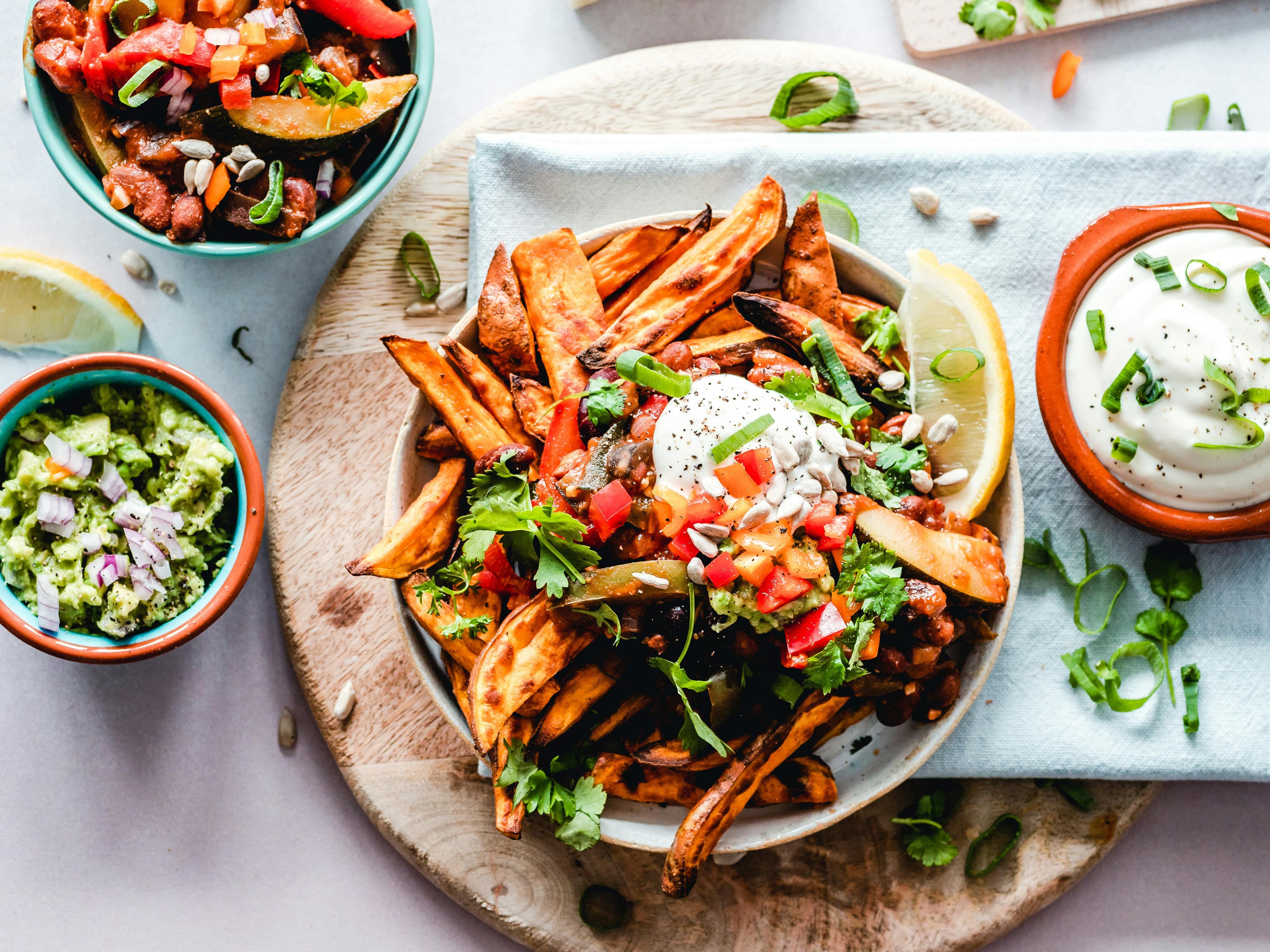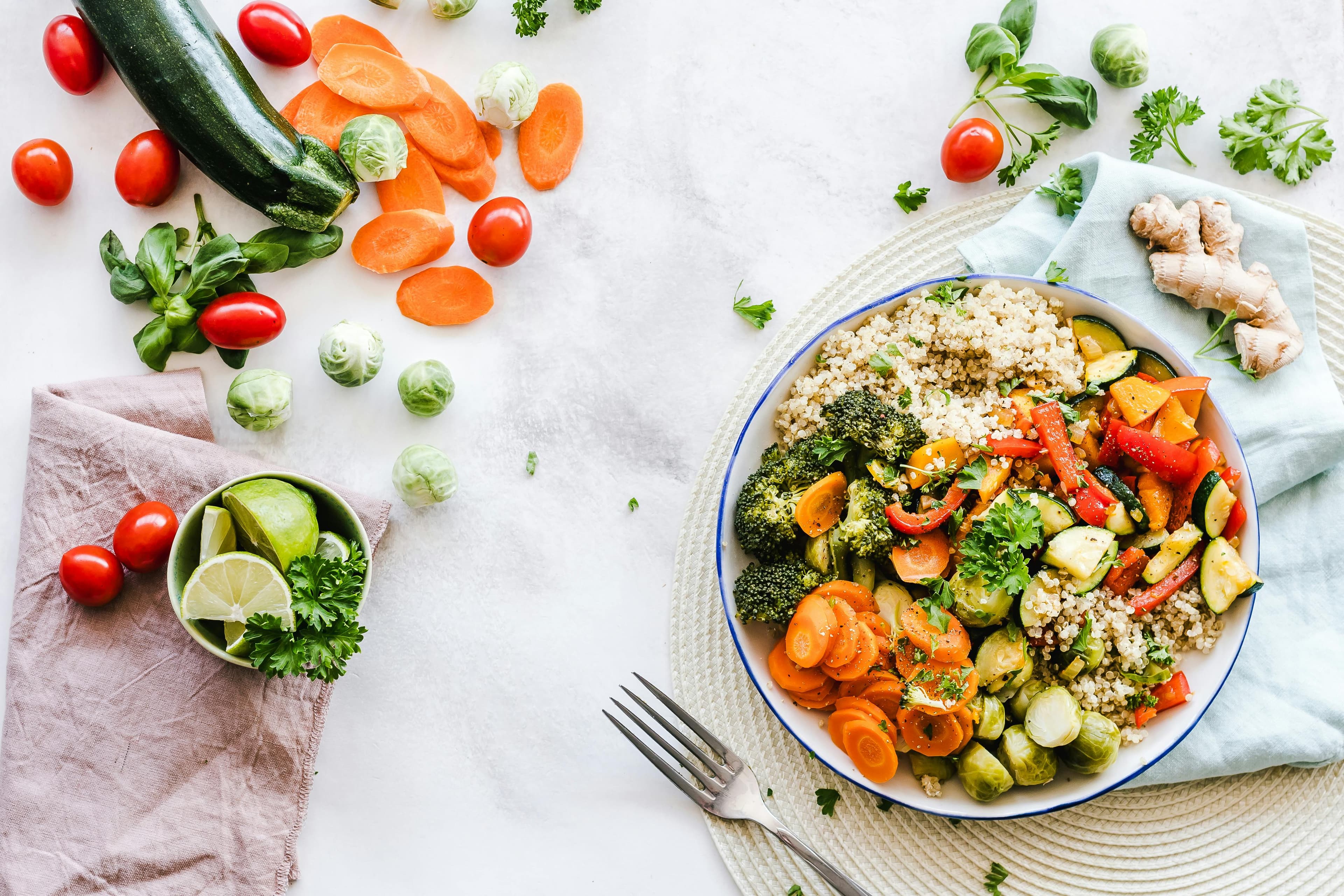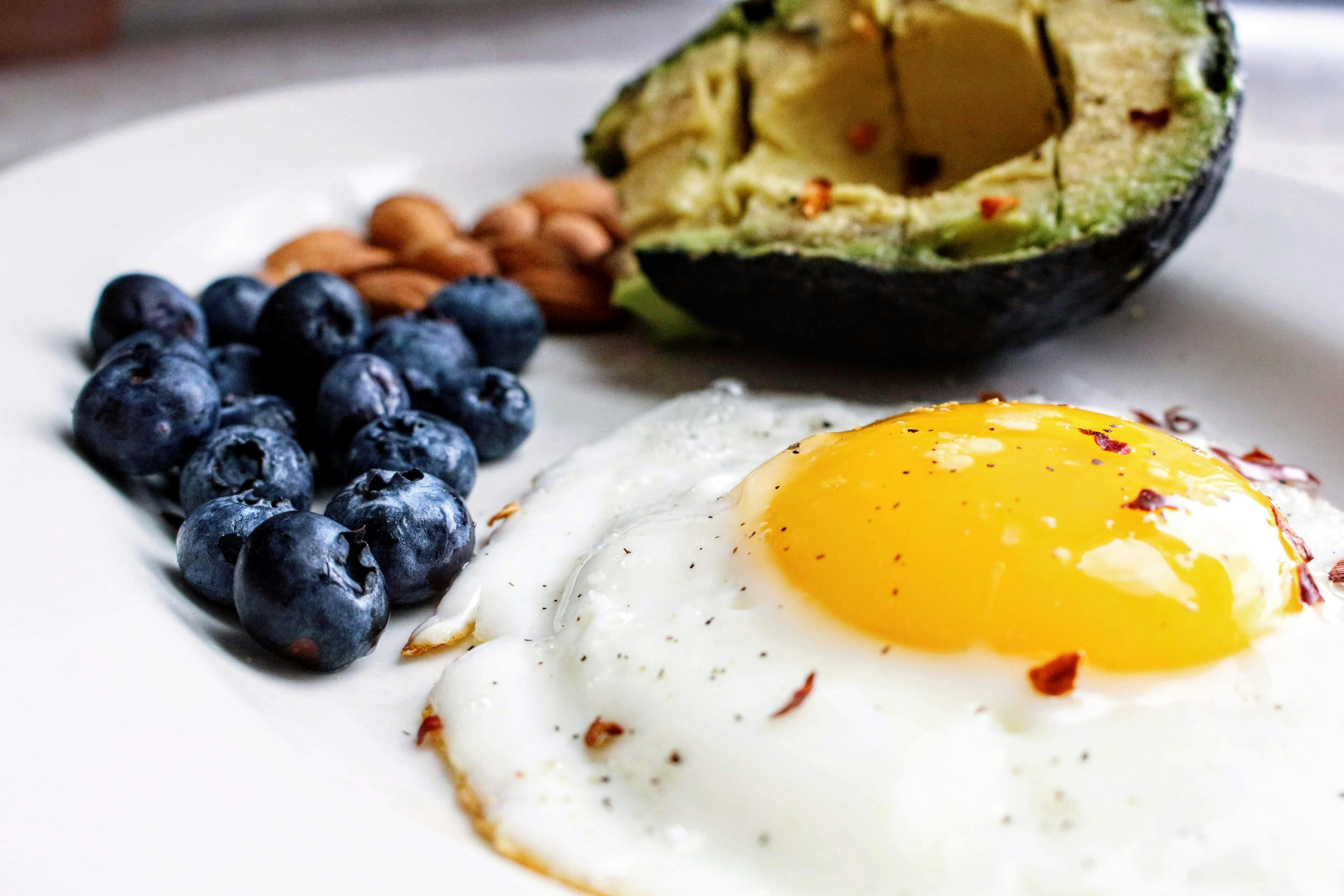PCOS Meal Plan: Complete 30-Day Guide to Managing PCOS Through Diet
Evidence-based nutrition strategies to balance hormones, reduce inflammation, and support sustainable weight management for women with PCOS

Key Takeaways
- • PCOS affects 1 in 10 women and requires personalized nutrition approaches
- • Anti-inflammatory foods can reduce PCOS symptoms by up to 40%
- • Balanced macros (40% carbs, 30% protein, 30% fat) optimize insulin sensitivity
- • Meal timing every 3-4 hours helps stabilize blood sugar and hormones
- • Use our PCOS meal planner for personalized meal plans
- • Consistent meal prep is key to long-term PCOS management success
This PCOS meal planning guide provides evidence-based nutrition strategies from registered dietitians specializing in hormonal health. For personalized PCOS management, consult with healthcare professionals through our platform.
If you're one of the 1 in 10 women living with Polycystic Ovary Syndrome (PCOS), you already know that managing this complex hormonal condition goes far beyond what most general diet advice offers[1]. PCOS isn't just about irregular periods—it's a metabolic condition that affects how your body processes insulin, stores fat, and produces hormones.
As registered dietitians who specialize in hormonal health, we've seen thousands of women transform their PCOS symptoms through strategic nutrition planning. This comprehensive guide isn't another restrictive diet—it's an evidence-based approach to eating that works with your body's unique PCOS challenges, not against them.
Quick Start: Essential PCOS Tools
The PCOS-Diet Connection: What You Need to Know
Understanding how PCOS affects your metabolism is crucial for creating an effective meal plan[2]. Unlike general weight loss diets, PCOS nutrition must address insulin resistance, chronic inflammation, and hormonal imbalances simultaneously.
🧬 How PCOS Affects Your Body:
Insulin Resistance
- • 70-80% of women with PCOS have insulin resistance
- • Leads to elevated blood sugar and weight gain
- • Increases testosterone production
- • Makes weight loss more difficult
Chronic Inflammation
- • Low-grade inflammation worsens PCOS symptoms
- • Linked to metabolic dysfunction
- • Affects hormone production and regulation
- • Can be reduced through anti-inflammatory foods
Hormonal Imbalances
- • Elevated androgens (male hormones)
- • Irregular ovulation and periods
- • Affects metabolism and appetite regulation
- • Impacts mood and energy levels
Weight Management Challenges
- • Slower metabolism due to insulin resistance
- • Increased cravings for high-carb foods
- • Tendency to store fat around midsection
- • Difficulty losing weight with traditional diets
Core Principles of the PCOS Diet
Successful PCOS nutrition isn't about restriction—it's about strategic food choices that work with your hormones[3]. These core principles form the foundation of any effective PCOS meal plan.
"The most successful PCOS meal plans aren't about perfection—they're about consistency with foods that support your body's unique metabolic needs. Small, sustainable changes compound into significant improvements in symptoms and quality of life."
PCOS Nutrition Specialist
🌿 Anti-Inflammatory Focus
Foods to Emphasize:
- • Fatty fish (salmon, sardines, mackerel)
- • Leafy greens and colorful vegetables
- • Berries and low-glycemic fruits
- • Nuts, seeds, and olive oil
- • Herbs and spices (turmeric, ginger)
Foods to Limit:
- • Processed foods and refined sugars
- • Trans fats and excessive omega-6 oils
- • High-glycemic index foods
- • Excess red meat and processed meats
- • Alcohol and sugary beverages
⚖️ Insulin Sensitivity Support
Balanced Macros:
- • 40% complex carbohydrates
- • 30% lean protein
- • 30% healthy fats
- • High fiber (25-35g daily)
Timing Strategies:
- • Eat every 3-4 hours
- • Protein with each meal
- • Larger meals earlier in day
- • Avoid late-night eating
Blood Sugar Control:
- • Choose low-glycemic foods
- • Pair carbs with protein/fat
- • Include cinnamon and chromium
- • Stay hydrated

Your 30-Day PCOS Meal Plan: Week 1 Sample
This sample meal plan demonstrates how to apply PCOS nutrition principles in real-world scenarios[4]. Each day provides balanced macronutrients, anti-inflammatory foods, and blood sugar-stabilizing combinations.
📋 Daily Nutrition Targets
Daily Targets:
- • 1,500-1,800 calories (adjust for activity)
- • 100-130g protein daily
- • 130-150g complex carbs
- • 60-80g healthy fats
- • 30-40g fiber
Key Principles:
- • Every meal contains protein
- • Focus on whole, unprocessed foods
- • Include anti-inflammatory ingredients
- • Balance blood sugar with each meal
- • Stay hydrated (8-10 glasses water)
Monday
🌅 Breakfast
Greek yogurt parfait with berries, chia seeds, and almonds
High protein, low GI
🥗 Lunch
Quinoa Buddha bowl with grilled chicken and roasted vegetables
Balanced macros, fiber-rich
🍽️ Dinner
Baked salmon with sweet potato and steamed broccoli
Anti-inflammatory
🥜 Snack
Apple slices with almond butter
Protein + healthy fat
Tuesday
🌅 Breakfast
Veggie-packed omelet with spinach and mushrooms
High protein, low GI
🥗 Lunch
Lentil and vegetable soup with mixed greens salad
Balanced macros, fiber-rich
🍽️ Dinner
Lean turkey meatballs with zucchini noodles
Anti-inflammatory
🥜 Snack
Greek yogurt with walnuts
Protein + healthy fat
Wednesday
🌅 Breakfast
Anti-inflammatory smoothie with spinach, berries, and protein powder
High protein, low GI
🥗 Lunch
Chickpea and vegetable curry with cauliflower rice
Balanced macros, fiber-rich
🍽️ Dinner
Grilled chicken with roasted Brussels sprouts and quinoa
Anti-inflammatory
🥜 Snack
Hummus with cucumber and bell pepper slices
Protein + healthy fat
PCOS-Friendly Recipes That Fight Inflammation
These evidence-based recipes incorporate specific nutrients and compounds that research shows can improve PCOS symptoms[5]. Each recipe is designed to be both delicious and therapeutically beneficial.
🥤 Anti-Inflammatory Green Smoothie
This nutrient-dense smoothie provides protein, fiber, and powerful anti-inflammatory compounds to start your day right.
Ingredients:
- • 2 cups spinach
- • 1/2 avocado
- • 1/2 cup frozen berries
- • 1 scoop vanilla protein powder
- • 1 tbsp chia seeds
- • 1 tsp fresh ginger
- • 1 cup unsweetened almond milk
- • 1/2 tsp cinnamon
PCOS Benefits:
- • High in magnesium (reduces inflammation)
- • Omega-3 fatty acids from chia seeds
- • Antioxidants from berries
- • Fiber to stabilize blood sugar
- • Cinnamon improves insulin sensitivity
- • Low glycemic index
🍛 Turmeric Chicken and Vegetable Bowl
A complete meal packed with anti-inflammatory spices and balanced macronutrients to support hormone health.
Ingredients:
- • 6 oz chicken breast
- • 1 cup cauliflower rice
- • 2 cups mixed vegetables (broccoli, bell peppers)
- • 1 tsp turmeric
- • 1/2 tsp ginger powder
- • 2 tbsp olive oil
- • 1/4 cup pumpkin seeds
- • Lemon juice and herbs
Instructions:
- 1. Season chicken with turmeric and ginger
- 2. Grill chicken until cooked through
- 3. Sauté vegetables in olive oil
- 4. Steam cauliflower rice
- 5. Assemble bowl with all ingredients
- 6. Top with pumpkin seeds and lemon

Evidence-Based Supplements for PCOS
While a well-planned diet should be your foundation, certain supplements have strong research support for improving PCOS symptoms when used alongside proper nutrition.
Important Supplement Guidelines
💊 Research-Supported PCOS Supplements
Core Supplements:
Inositol (2-4g daily)
Improves insulin sensitivity and ovulation rates
Omega-3 Fish Oil (1-2g EPA/DHA)
Reduces inflammation and supports hormone balance
Vitamin D (2000-4000 IU)
Essential for hormone regulation and metabolism
Additional Support:
Chromium (200-400mcg)
Enhances insulin sensitivity
N-Acetyl Cysteine (600mg 2x daily)
Antioxidant support and ovulation improvement
Magnesium (300-400mg)
Reduces inflammation and supports sleep
"I tell my PCOS patients that supplements are just that—supplements to a solid nutrition foundation. The magic happens when you combine evidence-based supplementation with consistent, anti-inflammatory eating patterns."
Board-Certified Reproductive Endocrinology & PCOS Specialist
PCOS Meal Prep Strategies for Success
Consistency is crucial for managing PCOS symptoms, and meal prep is your secret weapon for maintaining healthy eating habits even during busy weeks.
📦 Batch Cooking Tips
- Protein Prep:
Cook large batches of chicken, fish, and legumes on Sundays
- Vegetable Prep:
Wash, chop, and store vegetables for easy meal assembly
- Grain Alternatives:
Prepare cauliflower rice, quinoa, and zucchini noodles in advance
- Snack Portioning:
Pre-portion nuts, seeds, and protein-rich snacks
🥗 Make-Ahead Meals
- Breakfast:
Overnight oats, chia pudding, egg muffins
- Lunch:
Mason jar salads, soup portions, grain bowls
- Dinner:
One-pan meals, slow cooker recipes, freezer meals
- Snacks:
Energy balls, veggie packs with hummus, yogurt parfaits
Lifestyle Factors That Enhance Your PCOS Diet
PCOS management extends beyond nutrition. Sleep, exercise, and stress management work synergistically with your meal plan to optimize hormonal health.
💪 Exercise for PCOS
Recommended Activities:
- • Strength training 2-3x per week
- • HIIT workouts 1-2x per week
- • Low-intensity cardio (walking, yoga)
- • Avoid excessive high-intensity exercise
PCOS Benefits:
- • Improves insulin sensitivity by 20-25%
- • Reduces testosterone levels
- • Supports healthy weight management
- • Improves mood and reduces stress
😴 Sleep & Stress Management
Sleep Optimization:
- • Aim for 7-9 hours nightly
- • Maintain consistent sleep schedule
- • Create dark, cool sleep environment
- • Avoid screens 2 hours before bed
Stress Reduction:
- • Practice meditation or mindfulness
- • Try gentle yoga or stretching
- • Maintain social connections
- • Consider therapy if needed
Tracking Progress with PCOS
PCOS progress isn't always reflected on the scale. Learn to track the metrics that truly matter for your hormonal health and overall well-being.
PCOS Tracking Tools
📊 Key Metrics to Monitor
Physical Measures
- • Weight (weekly, same time)
- • Body measurements
- • Body fat percentage
- • Progress photos
- • Energy levels (1-10 scale)
Hormonal Indicators
- • Menstrual cycle regularity
- • Skin condition (acne improvements)
- • Hair growth patterns
- • Mood stability
- • Sleep quality
Lab Values
- • Fasting glucose and insulin
- • HOMA-IR (insulin resistance)
- • Testosterone levels
- • Inflammatory markers (CRP)
- • Vitamin D levels
Common PCOS Diet Mistakes to Avoid
Learning what NOT to do is just as important as following best practices. These common mistakes can actually worsen PCOS symptoms.
Avoid These Common PCOS Diet Pitfalls:
❌ Eliminating All Carbohydrates
While reducing refined carbs is important, completely eliminating carbs can worsen cortisol levels and thyroid function. Focus on complex carbs in appropriate portions.
❌ Skipping Meals to Lose Weight Faster
Irregular eating patterns worsen insulin resistance and hormone imbalances. Maintain consistent meal timing to support metabolic health.
❌ Following Generic Diet Plans
PCOS requires individualized nutrition approaches. What works for others may not work for you due to different PCOS phenotypes and insulin sensitivity.
PCOS Meal Planning on a Budget
Managing PCOS doesn't have to break the bank. Smart shopping strategies and budget-friendly ingredient choices can maintain an anti-inflammatory, hormone-balancing diet on any budget.
Budget-Friendly PCOS Resources
Budget PCOS Shopping Tips
- • Buy frozen vegetables for consistent anti-inflammatory nutrients
- • Purchase proteins in bulk when on sale and freeze portions
- • Use dried beans and lentils as affordable protein sources
- • Shop seasonal produce for best prices on fresh foods
- • Consider generic brands for pantry staples like olive oil and spices
Your PCOS Diet Questions Answered
Many women notice improvements in energy and mood within 2-4 weeks. Weight loss and hormone balance typically take 8-12 weeks, while menstrual cycle regulation can take 3-6 months of consistent dietary changes. Individual results vary based on PCOS type and severity.
Dairy affects women with PCOS differently. Some research suggests dairy may worsen insulin resistance and increase androgen levels. Try eliminating dairy for 4-6 weeks to assess your individual tolerance, then gradually reintroduce to monitor symptoms.
Intermittent fasting can benefit some women with PCOS by improving insulin sensitivity and reducing inflammation. However, it's not suitable for everyone, especially those with adrenal issues, eating disorder history, or severe insulin resistance. Consult your healthcare provider.
Evidence-based PCOS supplements include inositol (2-4g daily), omega-3 fish oil (1-2g EPA/DHA), vitamin D (2000-4000 IU), and chromium (200-400mcg). Magnesium and N-acetyl cysteine also show promise. Always consult your healthcare provider before starting supplements.
Rather than strict calorie counting, focus on balanced meals with appropriate portions and meal timing. Quality of food is often more important than exact calorie numbers for women with PCOS. However, creating a moderate calorie deficit may support weight management goals.
Yes! Plant-based PCOS diets can be very effective. Focus on protein sources like legumes, quinoa, tofu, and seeds. Ensure adequate B12, iron, and omega-3 intake through fortified foods or supplements. Plant-based diets may offer additional anti-inflammatory benefits.
Take Action: Your PCOS Management Journey Starts Today
Successfully managing PCOS through nutrition isn't about perfection—it's about consistent, evidence-based choices that support your body's unique hormonal needs. Start with one or two changes this week, whether that's adding an anti-inflammatory smoothie to your morning routine or meal prepping protein sources on Sunday.
Remember, PCOS affects every woman differently. What works beautifully for one person may need adjustments for another. Listen to your body, track your symptoms, and don't hesitate to work with healthcare professionals who understand the complexities of PCOS management.
References
- 1.Teede, H. J., et al. (2023). International evidence-based guideline for the assessment and management of polycystic ovary syndrome. Human Reproduction, 38(9), 1655-1679.External link
- 2.Barrea, L., et al. (2023). Nutritional management of PCOS: A systematic review of randomized controlled trials. Nutrients, 15(4), 923.External link
- 3.Kazemi, M., et al. (2022). Effects of dietary approaches on cardiovascular risk factors among patients with metabolic syndrome and related disorders: A systematic review. Diabetes Research and Clinical Practice, 186, 109813.External link
- 4.Shang, Y., et al. (2020). The role of nutrition in polycystic ovary syndrome (PCOS). Nutrients, 12(9), 2724.External link
- 5.Cutler, D. A., et al. (2019). Low intakes of dietary fiber and magnesium are associated with insulin resistance and hyperandrogenism in PCOS. Journal of Clinical Endocrinology & Metabolism, 104(9), 3771-3781.External link
Related Articles
Continue your PCOS journey with these helpful guides
Macro Calculator for Women with PCOS
Calculate your ideal protein, carb, and fat ratios specifically for PCOS management and hormone balance.
Anti-Inflammatory Diet for PCOS
Discover foods that reduce PCOS inflammation and support natural hormone balance.
Budget PCOS Meal Planning Guide
Affordable meal planning strategies for managing PCOS on any budget without compromising nutrition.
PCOS Meal Planning Made Simple
Get evidence-based PCOS nutrition tips, hormone-balancing recipes, and meal planning strategies delivered to your inbox every Sunday.
No spam, unsubscribe at any time.
Last Updated: 9/4/2025
Medical Disclaimer: This PCOS meal planning guide is for educational purposes only and does not constitute personalized medical or nutritional advice. PCOS management varies significantly between individuals based on phenotype, severity, and underlying health conditions. Always consult with qualified healthcare professionals, including registered dietitians and endocrinologists specializing in PCOS, for meal planning guidance tailored to your specific health needs and medical history.